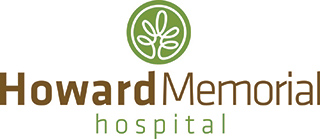Blog
Numbers don’t lie: colon cancer is the nation’s second deadliest cancer for adults
One screening can help you beat the odds

When numbers do the talking the seriousness of colon cancer is clear.
Referred to as a silent killer because symptoms don’t often appear until an advanced stage, colon cancer doesn’t discriminate. It impacts men and women of all ages. But one screening, a colonoscopy, detects the cancer at its earliest stages when it’s easiest to treat, and beat. And a colonoscopy is the only screening that can actually prevent the cancer entirely; precancerous polyps are removed during the procedure before they develop into cancer—long before symptoms would be noticeable.
Keep these numbers in mind and talk to your provider about when you should start colon cancer screenings. It’s always the perfect month—or year—to make health your number one priority.
Nearly 150,000 people will be diagnosed with colon cancer in 2021.
2 to 4. Those with a parent or sibling diagnosed with colon cancer are two to four times more likely to develop the disease.
90%. When detected early, colon cancer is very treatable and has a 90% survival rate in localized diagnoses.
1 in 20. Nearly one in 20 people will be diagnosed with colon cancer in his or her lifetime.
45 to 50. While age 50 was the recommended age to start colon cancer screenings, the American Cancer Society now suggests people at average risk start screenings at age 45. If you have health risks, symptoms of the cancer, or a family history of the disease, talk to your provider. He or she may recommend you start screenings sooner.
Nearly 22 million adults ages 50 to 75 have never been screened.
90% of colon cancer cases of occur in adults over age 50.
One screening. Every 10 years. Of course a colonoscopy isn’t usually anyone’s favorite, but the screening is quite simple. It’s often over before people realize it started, and prep has improved significantly. The best part? If there are no signs of cancer, people often have 10 years until they need the screening again—that’s an entire decade!
It all adds up; one screening can equal continued health, or save you from months of battling a fatal—but often very preventable—cancer. Adding one appointment that could subtract unnecessary risk, added medical visits and unneeded anxiety? Now, that’s just good math.
Posted in: Health